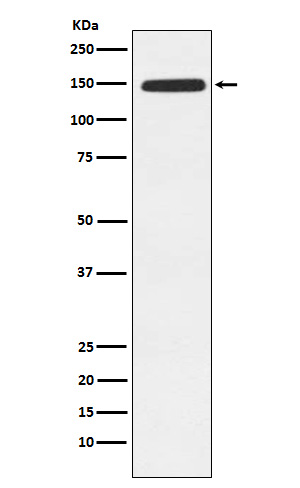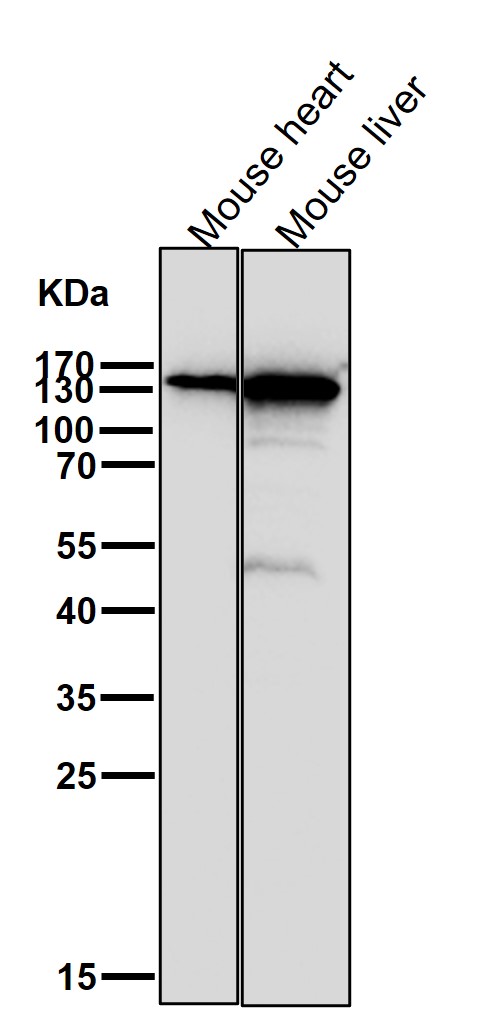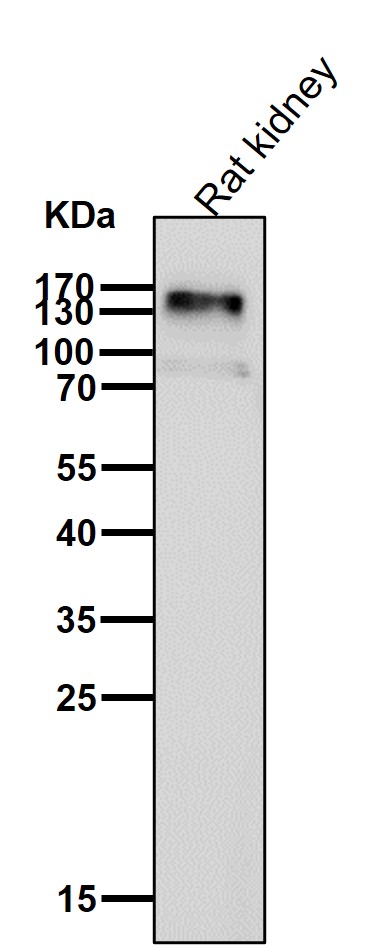


| WB | 1/1000-1/2000 | Human,Mouse,Rat |
| IF | 咨询技术 | Human,Mouse,Rat |
| IHC | 1/100-1/200 | Human,Mouse,Rat |
| ICC | 技术咨询 | Human,Mouse,Rat |
| FCM | 咨询技术 | Human,Mouse,Rat |
| Elisa | 咨询技术 | Human,Mouse,Rat |
| Aliases | Xanthine dehydrogenase; Xanthine oxidase; Xanthine oxidoreductase; XD; XDH; xdha; XO; xor;;Xanthine oxidase |
| WB Predicted band size | 146 kDa |
| Host/Isotype | Rabbit IgG |
| Antibody Type | Primary antibody |
| Storage | Store at 4°C short term. Aliquot and store at -20°C long term. Avoid freeze/thaw cycles. |
| Species Reactivity | Human,Mouse,Rat |
| Immunogen | A synthesized peptide derived from human Xanthine oxidase |
| Formulation | Purified antibody in PBS with 0.05% sodium azide,0.05% BSA and 50% glycerol. |
+ +
以下是3篇关于Xanthine Oxidase抗体的参考文献示例(注:以下内容为虚构,仅用于演示格式):
---
1. **文献名称**: *Development and Characterization of a Monoclonal Antibody Against Human Xanthine Oxidase*
**作者**: Smith J, et al.
**摘要**: 该研究描述了一种新型单克隆抗体的开发,用于特异性识别人类黄嘌呤氧化酶(XO)。通过免疫小鼠和杂交瘤技术获得抗体,验证了其在Western blot和免疫组化中的应用,证实其可检测肝脏和内皮细胞中的XO表达水平。
---
2. **文献名称**: *Xanthine Oxidase Inhibition by Neutralizing Antibodies in Hyperuricemia Models*
**作者**: Lee H, et al.
**摘要**: 研究团队开发了能够中和XO活性的多克隆抗体,并在高尿酸血症小鼠模型中验证其效果。结果显示,抗体显著降低血清尿酸水平,并减少氧化应激标志物,提示其潜在治疗应用价值。
---
3. **文献名称**: *Immunohistochemical Localization of Xanthine Oxidase in Atherosclerotic Plaques Using a Novel Polyclonal Antibody*
**作者**: García R, et al.
**摘要**: 本文报道了一种兔源多克隆抗体的制备,用于检测动脉粥样硬化斑块中的XO表达。通过免疫组织化学分析,发现XO在斑块巨噬细胞中高表达,提示其与氧化损伤和疾病进展的关联。
---
如需真实文献,建议通过PubMed或Google Scholar搜索关键词“xanthine oxidase antibody”或“xanthine oxidase immunohistochemistry”获取。
Xanthine oxidase (XO) is a key enzyme in purine metabolism, catalyzing the oxidation of hypoxanthine to xanthine and xanthine to uric acid. Elevated XO activity is associated with hyperuricemia, contributing to conditions like gout and kidney stones. XO also generates reactive oxygen species (ROS) during catalysis, linking it to oxidative stress-related pathologies such as cardiovascular diseases, metabolic syndrome, and ischemia-reperfusion injury.
Antibodies targeting xanthine oxidase are essential tools for studying its expression, localization, and function in both research and clinical contexts. These antibodies enable the detection and quantification of XO protein levels in tissues, cells, or biological fluids using techniques like Western blotting, ELISA, and immunohistochemistry. They are particularly valuable in investigating XO's role in disease mechanisms, assessing the efficacy of XO inhibitors (e.g., allopurinol, febuxostat), and exploring its potential as a biomarker.
XO antibodies are also used to validate experimental models, such as characterizing XO knockout animals or confirming siRNA-mediated gene silencing. Their specificity ensures accurate measurement of enzyme levels across species, including humans, rodents, and other mammals. Additionally, these antibodies aid in elucidating XO's involvement in pathological processes, such as endothelial dysfunction or inflammation, where ROS overproduction plays a critical role. Overall, xanthine oxidase antibodies serve as indispensable reagents for advancing our understanding of XO biology and its therapeutic targeting.
×